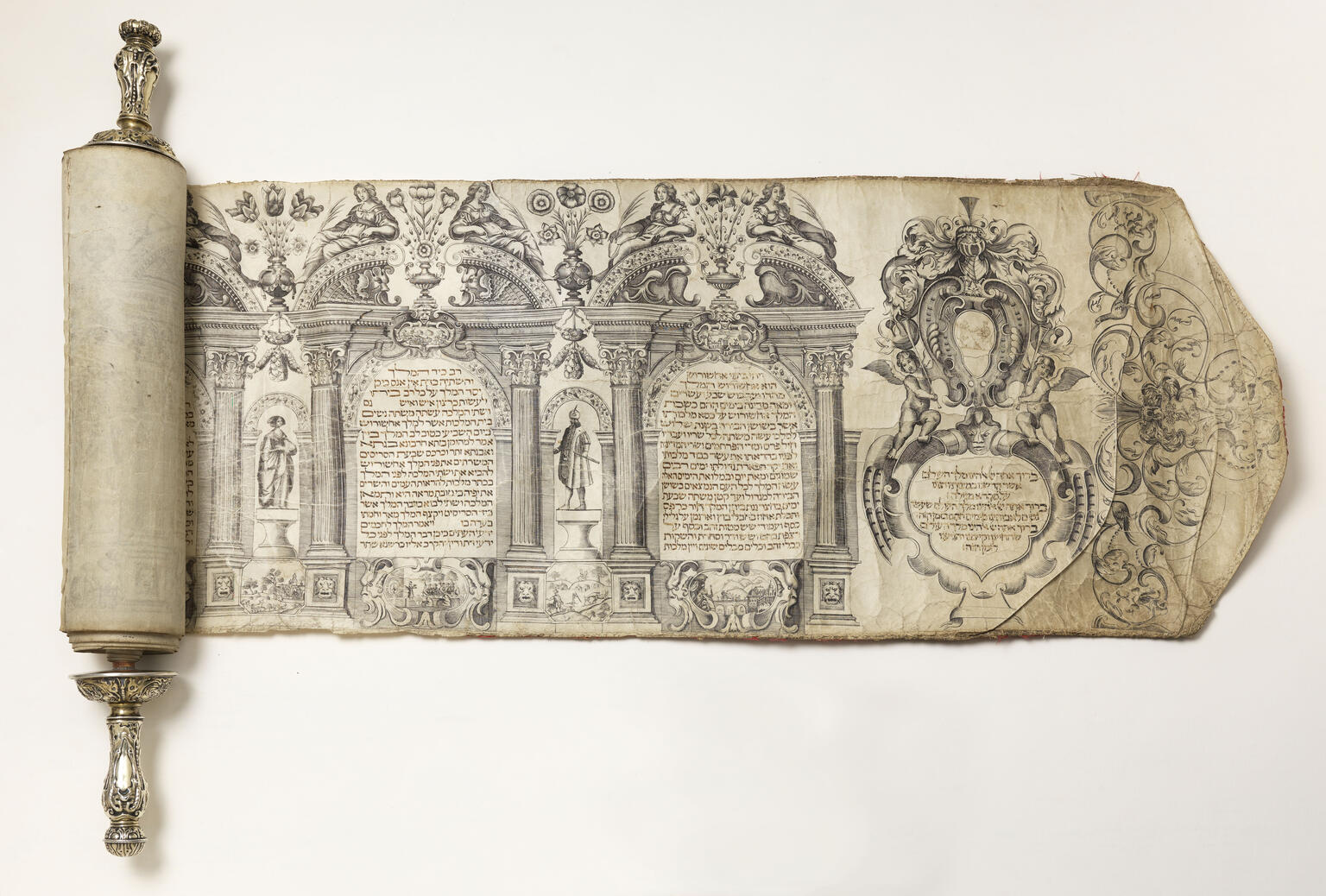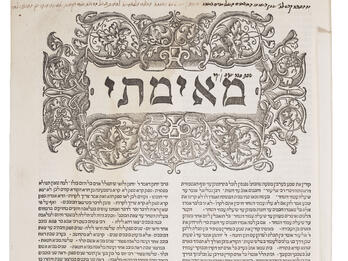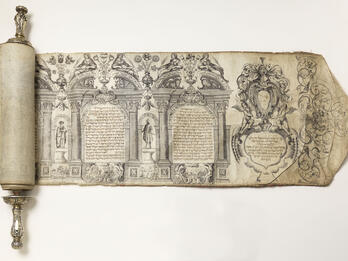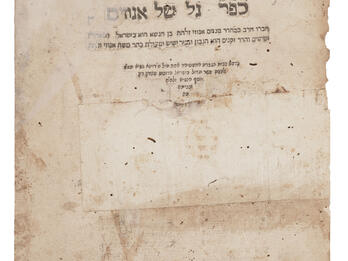Esther Scroll (Amsterdam)
Shalom Italia
1640
Image

Engage with this Source

Related Guide
Jewish Printing and Book Culture
1500–1750
Jewish printing unified far-flung communities by standardizing religious texts, created textual uniformity, and enabled vernacular translations, and facilitated the spread of Jewish texts and knowledge.
Restricted
Related Guide
Early Modern Jewish Languages
1500–1750
As Ashkenazi and Sephardi Jews migrated eastward, Yiddish and Ladino emerged as distinct languages. Both languages developed literary traditions, as print became more widespread.
Creator Bio
Shalom Italia
1619–1655
Engraver, etcher, and draftsman Shalom Italia was, as his name indicates, from Italy, where his family worked in the Mantua printing industry. However, probably attracted by the opportunities in the growing metropolis, he made his way to Amsterdam by 1641. Among Shalom Italia’s works are illustrated ketubot (marriage contracts), book illustrations, and portraits of the community’s leading figures, such as Menasseh Ben Israel, who was the founder of Amsterdam’s first Hebrew printing press and an advocate for the readmission of Jews to England.
You may also like

Responsum: On Printed Megilot (Scrolls of) Esther
Question: . . . When Rabbi Joseph Ottolenghi was visiting this land, he told me that he printed sixteen megillot on parchment prepared for this purpose [i.e., to be used for the scrolls—Ed.]. When I…
Sheloshah perushim (Three Commentaries) on the Song of Songs: On the Edition
One day, I was reading a certain book, which contained eight commentaries on the Song of Songs. More precious than pearls they are; all of their commentaries are sapphires, the words of the living God…
With God’s Help
With God’s help I set myself the aim,
And with God’s aid I hope to achieve the same.
The holy book of Psalms in Taytsh [Yiddish] to make known,
Hoping that all shall praise and extol God, blessed be…
Title Page: Moses Margolioth’s Ḥasde ha-shem (Mercies of the Lord)
What is sweeter than honey? (Judges 14:18) a honeycomb of delights.
And what is more to be desired than gold, and a multitude of rubies (Proverbs 20:15)?:
This precious treatise of great worth.
Inclu…
Tsemaḥ David (The Sprout of David): On the Invention of the Printing Press
The printing of books: began [lit. “was located”] in the city of Mainz, by a Christian man named Johannes Gutenberg of Strasbourg, and this was in the first year of the pious emperor, Friedrich, in…

Menaḥem Egozi’s Gal shel egozim (Nut Garden)
This book was printed in Belvedere, outside Constantinople, by Reina Nasi, the daughter of Gracia Nasi, and widow of Joseph. She was the first Jewish woman to establish her own press.


